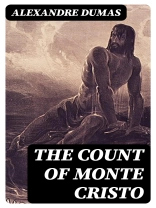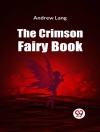The Count of Monte Cristo, a hallmark of 19th-century literature, embodies the essence of adventure and revenge woven intricately through Dumas’s rich and evocative narrative style. The novel unfolds the tale of Edmond Dantès, a young sailor who, wrongfully imprisoned, transforms into the enigmatic Count of Monte Cristo. Dumas masterfully explores themes of justice, retribution, and the moral complexities of revenge, set against the backdrop of post-Napoleonic France. The intricate plot is laced with historical and social commentary, revealing the interplay between personal ambitions and societal constraints, making it a timeless classic. Alexandre Dumas, a prolific writer and playwright, was born to a French nobleman and a black slave, which fueled his fascination with themes of identity and justice. His own life was marked by tumult and adventure; his experiences with betrayal and resilience influenced the creation of Dantès’s character. Dumas’s deep understanding of human emotion and ambition, combined with his penchant for storytelling, culminated in this masterpiece, reflecting not just his personal history but also the turbulent socio-political landscape of his time. Readers interested in a profound exploration of vengeance and redemption should delve into The Count of Monte Cristo. Dumas’s intricate character development and poignant moral inquiries will resonate across generations, inviting readers to reflect on the boundaries of justice and the power of perseverance.
Mengenai Pengarang
Alexandre Dumas (1802–1870) was a French writer whose works have gained international acclaim and are a pivotal part of the literary canon. His novels are renowned for their action-packed narratives and elaborate characterizations, often set against vivid historical backdrops. Dumas was born in Villers-Cotterêts, France, to General Thomas-Alexandre Davy de la Pailleterie and Marie-Louise Élisabeth Labouret. He later adopted ‘Dumas’ from his grandmother, an enslaved Afro-Caribbean woman in the French colony of Saint-Domingue. He prolifically wrote in various genres but is best known for his historical adventure novels. Among his illustrious bibliography, ‘The Count of Monte Cristo’ (1844–1845), stands out as a crowning achievement, telling the dramatic tale of Edmond Dantès’s unjust imprisonment and his ultimate quest for revenge. This book, alongside ‘The Three Musketeers’ and ‘Twenty Years After’ are prime examples of his mastery in combining history with storytelling, catered not just to entertain but also to offer a critique on the social and political climate of his time. Dumas’s writing style, characterized by fast-paced plots and engaging dialogue, has inspired a myriad of adaptations in film, stage, and television, preserving his legacy as one of the great storytellers in Western literature.












